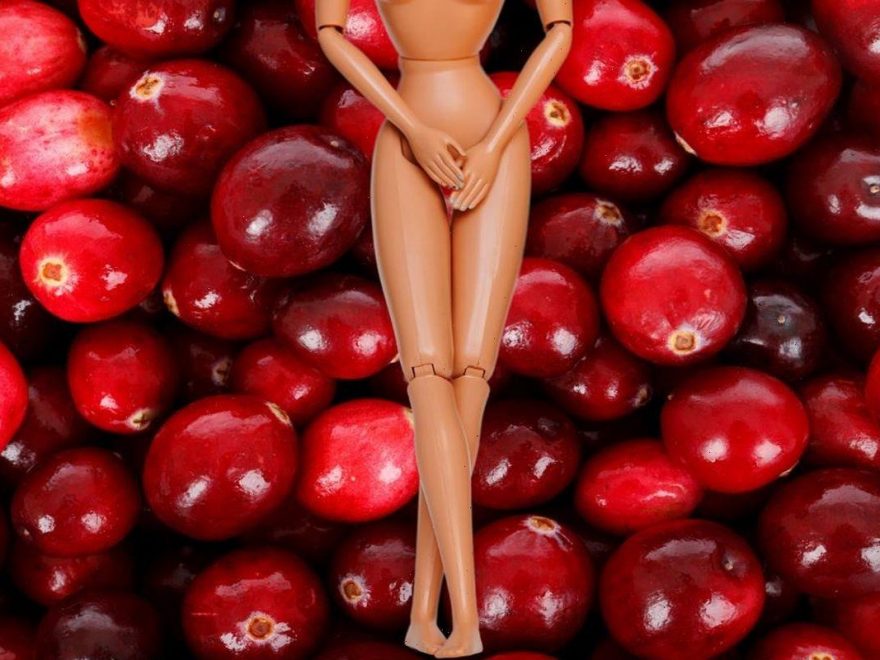IF you're experiencing a burning sensation down below, or peeing more often then you could have a urinary tract infection (UTI).
While your first instinct might be to reach for the cranberry juice, one doctor says it might not actually help your symptoms.

The NHS says that UTIs are usually caused by bacteria from poo entering the urinary tract.
If you have a UTI it's likely someone will recommend that you drink cranberry juice to help soothe the pain.
It's an age old remedy that people have been using due to A-type proanthocyanidins (PACs) present in cranberries that can prevent bacteria from sticking to the bladder wall.
The NHS says that if you have a UTI you might need to take a course of antibiotics that can be prescribed by your GP.
But many people turn to cranberry juice with it being one of the most popular DIY treatments on TikTok, raking in over 150 million views.
You can get the 'at home remedy' through drinking cranberry juice or by taking cranberry juice supplements, but do they really work?
Most wread in Health

VIRAL SPREAD
Omicron 'stealth sister' sub-variant spreading in UK – is your area a hotspot?

Popular fizzy drink increases your risk of having a stroke by FIVE times

Dad, 41, dies of brain tumour after spotting symptoms on TV show

Daily Covid cases plummet 58% in a month as deaths continue to fall
Dr Sameer Sanghvi from LloydsPharmacy Online Doctor said some people believe drinking cranberry juice or using products that lower the acidity of their urine (such as sodium bicarbonate or potassium citrate) reduces their symptoms, but there's a lack of evidence to suggest they're effective.
He said that while the phenolic acids and flavonoids within cranberries might not treat your current UTI, there have been some studies to suggest that cranberry supplements may have a part to play in preventing future UTIs.
"Cranberries are thought to work by helping prevent bacteria sticking to the lining of the bladder", he added.
The internet is filled with hacks and various health tips and some women have claimed that cranberry supplements and juices have cleared their UTIs quicker than antibiotics alone.
How you should treat and prevent a UTI
UTIs are preventable and there are many things you can to to keep them at bay.
The NHS says that wiping front to back when going the loo is one of the main things, as is keeping the genital area clean and dry.
They also advise drinking lots of water so you don't feel thirsty and to wash the skin around the vagina with water before and after sex.
Experts also suggest peeing as soon as you can after sex as well as promptly changing nappies and incontinence pads if they are soiled.
How to treat a UTI
The NHS says:
- you should take paracetamol up to four times to reduce rthe pain
- kids can have liquid paracetamol
- rest
- drink enough fluids so you pass regular urine
The experts added that you can't pass UTIs to your partner but that sex might be uncomfortable.
"Taking cystitis sachets or cranberry products has not been shown to help ease symptoms of UTIs", they added.
Dr Sanghvi said: "Most of the current research focuses around how cranberries help prevent UTIs rather than treat them.
"There needs to be more research into how well cranberry products can prevent UTIs, as well as which exact properties of cranberries can help.
"Antibiotics are proven to help cure the infection, so it’s always recommended that you see a doctor if you’re suffering from a UTI.”
When treating UTIs the NHS actually advises against drinking sugary drinks and eating sugary foods and cranberry juice has naturally occurring sugars.
They say that you should avoid sugary drinks and foods as they encourage bacteria to grow.
How to prevent a UTI?
There are some things that increase your risk of getting a UTI included having sex and pregnancy.
Conditions that block the urinary tract such as kidney stones can also have an impact as can conditions that make it difficult to fully empty the bladder – such as an enlarged prostate gland in men and constipation in children.
The NHS says that people with urinary catheters are at a heightened risk of UTIs, as well as people who have a weakened immune system due to illnesses such as diabetes or people who are having chemotherapy.
Not drinking enough fluids and not keeping the genital area clean and dry can also have a large impact.
We pay for your stories!
Do you have a story for The Sun news desk?
Email us at [email protected] or call 0207 782 4104. You can WhatsApp us on 07423 720 250. We pay for videos too. Click here to upload yours
Click here to get The Sun newspaper delivered for FREE for the next six weeks.
Source: Read Full Article
